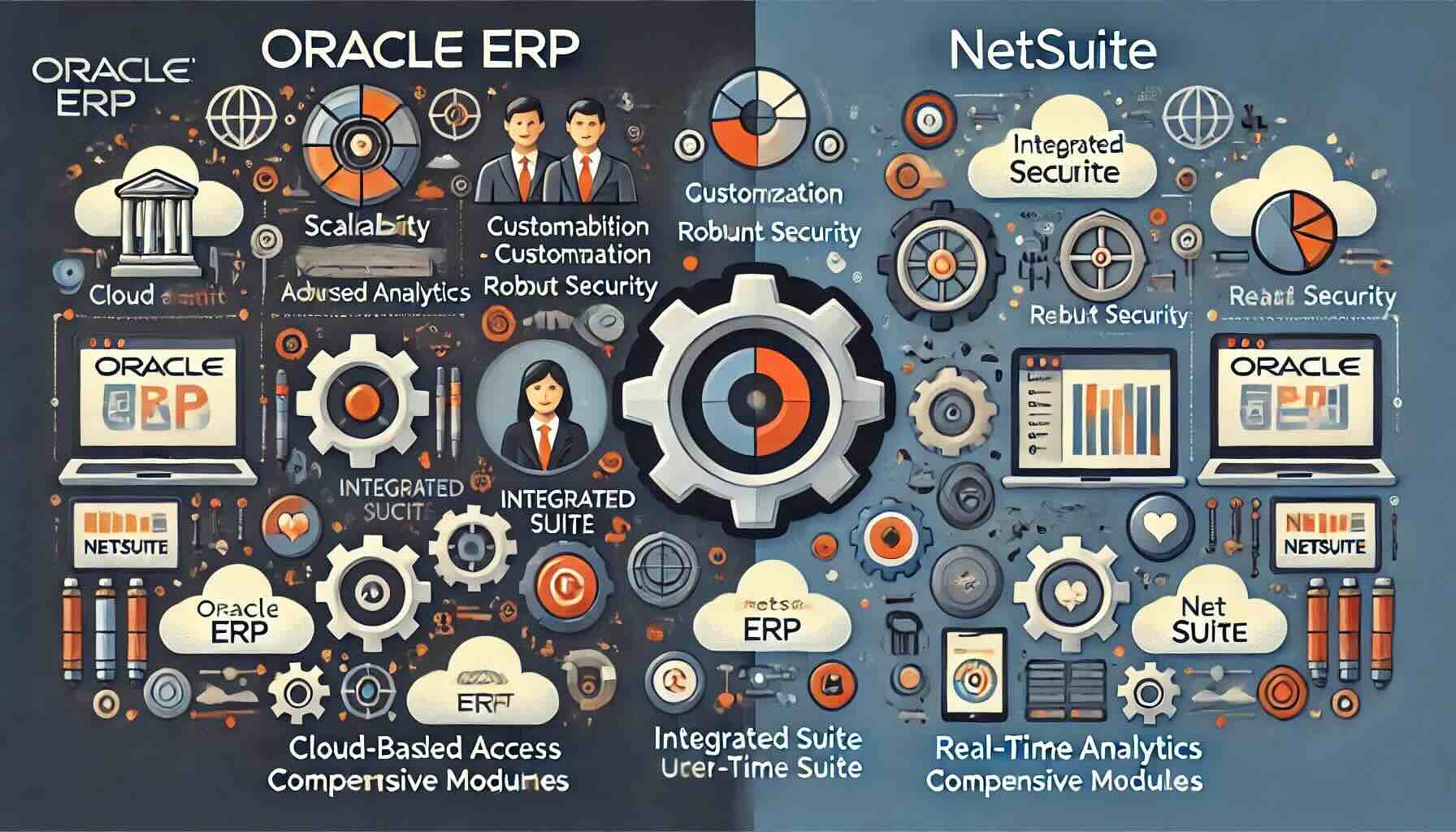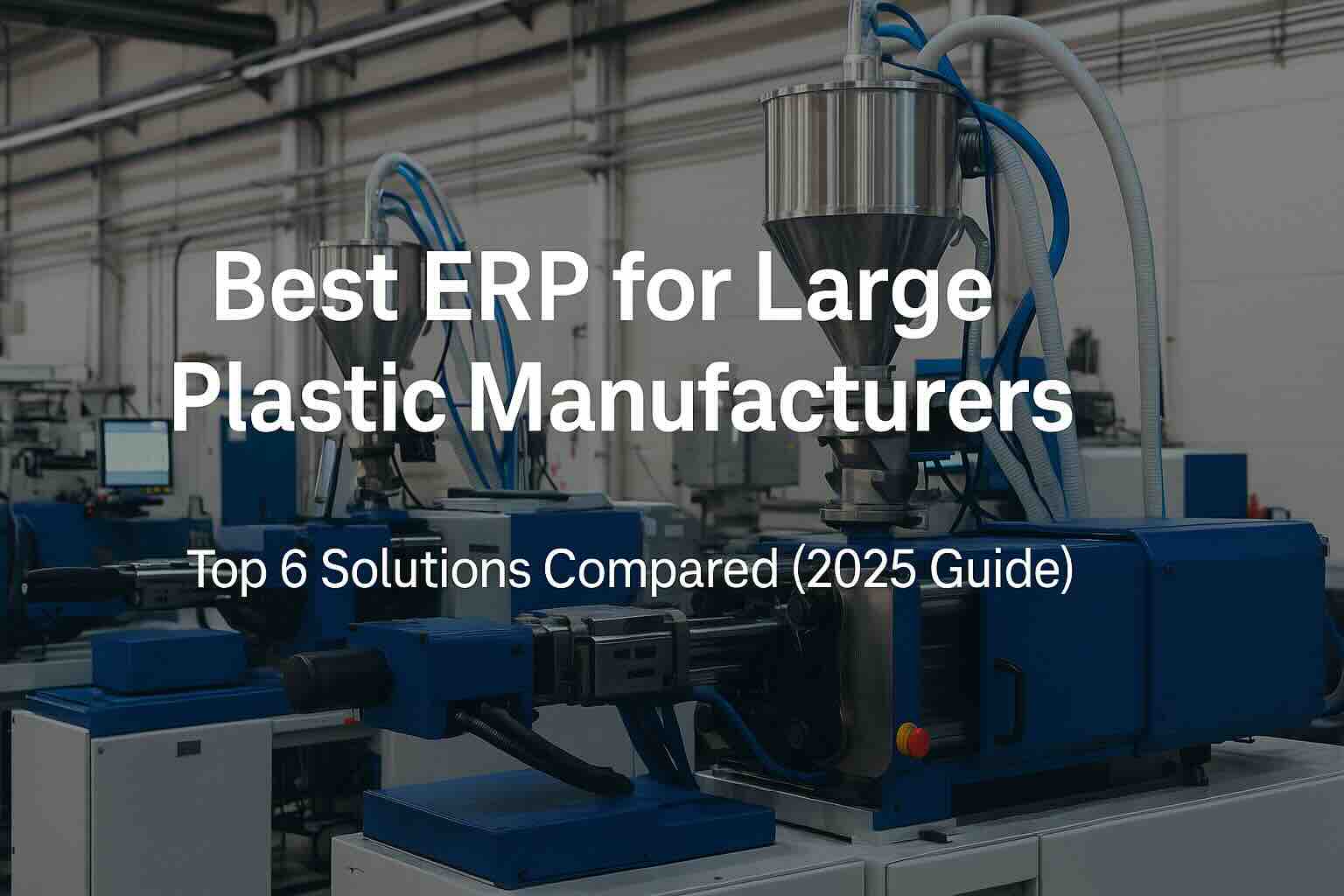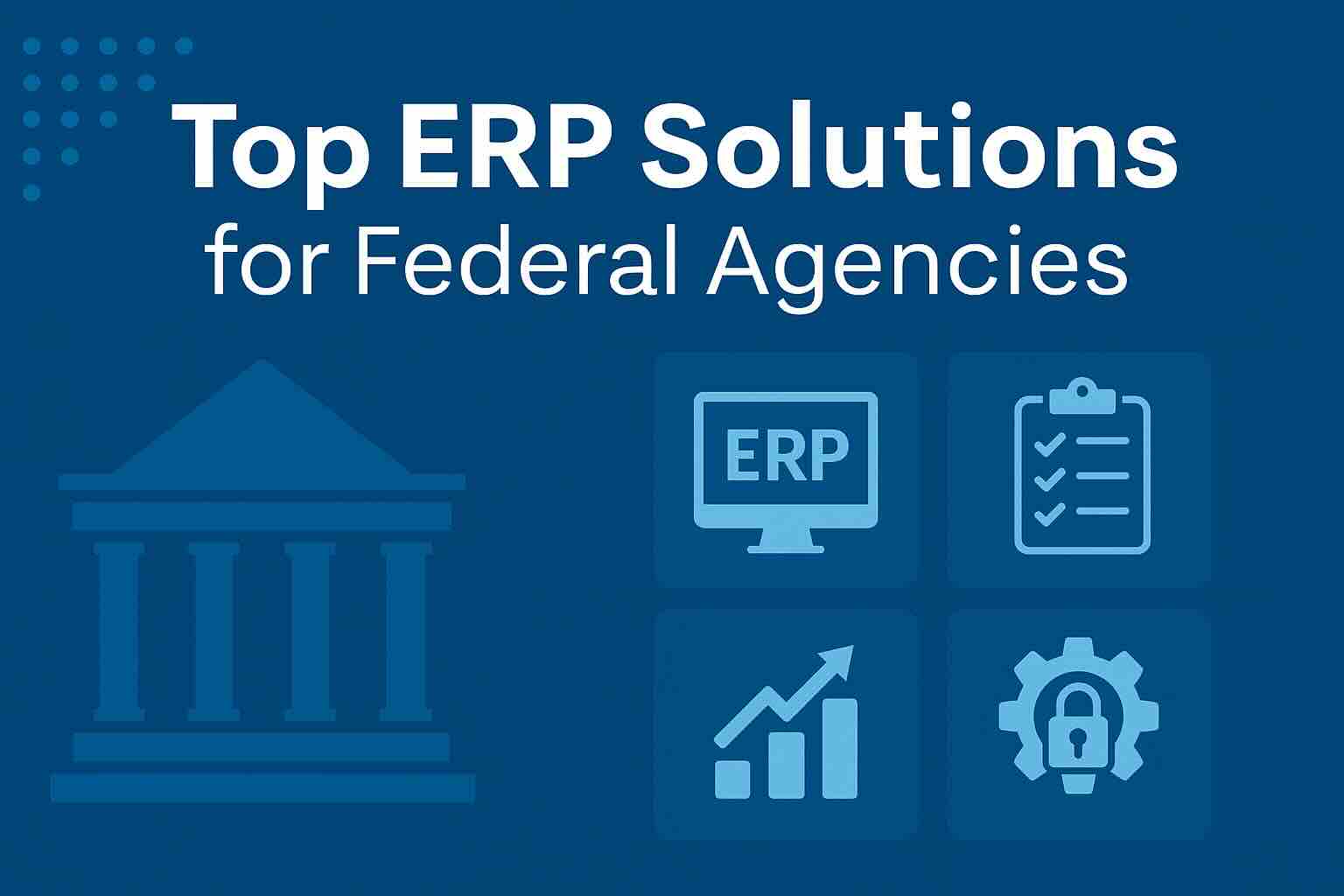Oracle ERP vs NetSuite: Which ERP Solution is Right for Your Business?

When it comes to enterprise resource planning (ERP) systems, two of the most prominent names are Oracle ERP and NetSuite. Understanding the difference between Oracle ERP and NetSuite is crucial for businesses aiming to choose the right solution for their unique requirements.
Overview of Oracle ERP
Oracle ERP is a comprehensive suite of integrated applications designed to automate and streamline business processes across various functions. It is particularly well-suited for large enterprises with complex requirements.
Key Features of Oracle ERP:
- Scalability: Can handle the needs of large, global organizations.
- Comprehensive Modules: Offers modules for finance, procurement, project management, and more.
- Customization: Highly customizable to meet specific business needs.
- Advanced Analytics: Provides powerful analytics and reporting tools.
- Robust Security: Ensures data security and compliance with various regulations.
- Deployment Options: Available as both on-premises and cloud-based solutions.
Overview of NetSuite
NetSuite, also owned by Oracle, is a cloud-based ERP solution aimed primarily at small to medium-sized businesses. It offers a user-friendly interface with easy deployment and lower IT overhead.
Key Features of NetSuite:
- Cloud-Based: Accessible from anywhere with an internet connection.
- Integrated Suite: Includes ERP, CRM, and e-commerce capabilities.
- Scalability: Suitable for growing businesses.
- User-Friendly: Easier to implement and use, with less need for extensive customization.
- Real-Time Analytics: Offers real-time data and reporting.
- Seamless Integration: Integrates well with a variety of applications, especially those designed for cloud environments.
Comparing Oracle ERP and NetSuite
Target Market:
- Oracle ERP: Best for large enterprises with complex, industry-specific requirements.
- NetSuite: Ideal for small to medium-sized businesses looking for an all-in-one solution.
Deployment:
- Oracle ERP: Available as both on-premises and cloud-based solutions.
- NetSuite: Exclusively cloud-based, offering easy deployment and lower IT overhead.
Customization and Complexity:
- Oracle ERP: Highly customizable but may require significant time and resources to implement.
- NetSuite: Less customizable but easier and faster to deploy.
Cost:
- Oracle ERP: Generally more expensive due to its extensive features and customization capabilities.
- NetSuite: More cost-effective, especially for smaller businesses.
Integration:
- Oracle ERP: Strong integration capabilities with other Oracle products and third-party applications.
- NetSuite: Seamless integration with a variety of applications, especially those designed for cloud environments.
Which One is Right for Your Business?
Choosing between Oracle ERP and NetSuite depends on several factors including the size of your business, budget, specific business requirements, and long-term goals.
- Large Enterprises: If you are a large enterprise needing a robust, customizable, and scalable solution, Oracle ERP might be the better choice.
- Small to Medium-Sized Businesses: If you are a smaller company seeking a cost-effective, easy-to-implement solution with comprehensive features, NetSuite could be ideal.
Conclusion
Understanding the difference between Oracle ERP and NetSuite is essential for making an informed decision. While both ERP systems offer powerful features and capabilities, their suitability varies depending on the size and needs of your business. By assessing your company’s specific requirements, you can choose the ERP solution that best aligns with your strategic goals and operational needs.
To compare Oracle ERP & Netsuite with 100s of other ERP solutions, you can use our new AI-powered Compare ERP tool. It’s free to use and you get a guaranteed discount on your first year’s licence fees with a referral from Compare ERP.









